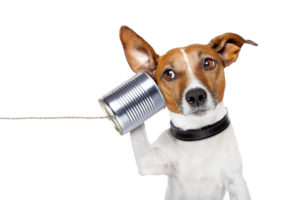Writing Dialogue
I generally love reading dialogue, and I also love writing dialogue. The trick to making it sound real and not contrived, I’ve found, is to mess it up. People don’t come to the end of a perfectly composed sentence with a vocal period; they trail off mid-thought, or they run on and on with long, baroque digressions. People interrupt each other. They lose their trains of thought. They reveal half-baked thought processes. They swear and exclaim and change the subject mid-stream. They lie and obfuscate and dissemble and intentionally mislead. They misspeak. They use words that mean something different than the ones they intend. They hope to signal they’re paying attention when clearly they’re not. Couples sometimes use a revealing shorthand, as do best friends. Reading that kind of natural-sounding dialogue is both enormously entertaining and revealing of character.
Try eavesdropping next time you’re in public—you’ll totally see what I mean.
The other cool thing about dialogue is the power it has to advance your narrative with fewer words!




